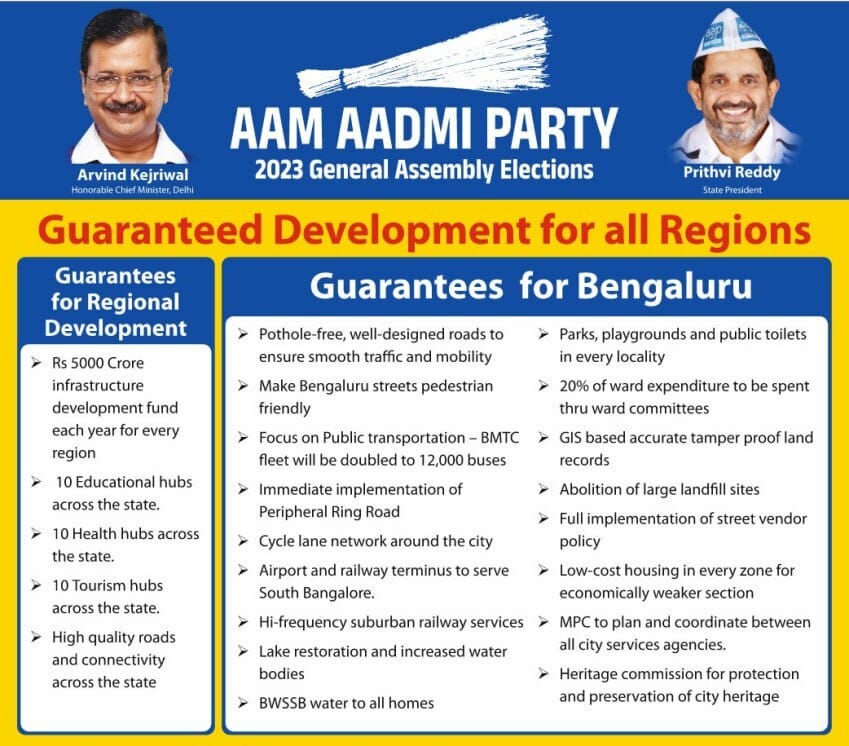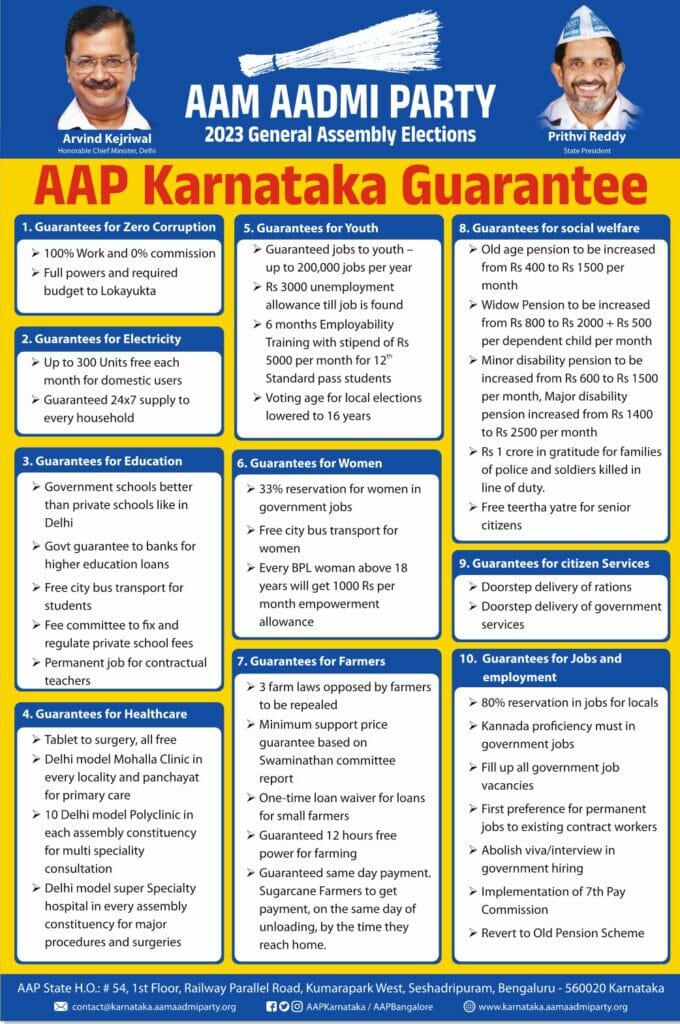Aam Aadmi Party (AAP) National Spokesperson and Rajya Sabha Member Sanjay Singh released the list of Aam Aadmi Party guarantees for the Karnataka assembly elections in Bengaluru on March 29th.
Read more: How we registered our Apartment Owners Association under KAOA, 1972
Addressing a press conference at the party’s state office, Sanjay Singh said, “Aam Aadmi Party is not a party that gives false promises. We offer a guarantee card with 100% fulfillment. We have fulfilled all the guarantees in the manifesto in Delhi. One by one is being implemented in Punjab as well.”
“Major guarantees related to total ten sectors like 300 units of free electricity per month to every household in Karnataka, unemployment allowance of Rs 3, 000 per month to unemployed youth, clinics for quality health care, development of government schools, implementation of old pension scheme are being announced today. Besides, we are announcing separate guarantees for the regional development of Bangalore and the state,” he said.

“Aam Aadmi Party has come to power for the third time in Delhi and first time in Punjab. In the Goa elections, We have got more than 6% vote share. In Gujarat 14% voteshare were received and five MLAs were elected. Although the Aam Aadmi Party is legally eligible for national party status, the Election Commission is yet to officially declare it. “Our application has been pending for many months,” Sanjay Singh lamented.
Aam Aadmi Party state president Prithvi Reddy said, “We have been going through the process of creating a manifesto for the past one month. Thousands of suggestions have already come in from all corners of the state. Different sections of people, youth, women, experts are giving suggestions. The manifesto is being prepared by the people ,for the people and we are adding whatever we can. Every family in the state will save at least 8 to 10 thousand rupees every month due to the guarantees of Aam Aadmi Party. We are giving these in the form of guarantee cards and if we come to power and do not implement these, people will have a chance to go to court. There will be a solution to the problems of every sector of people of the state in the manifesto,” he said.

Aam Aadmi Party State Communication Officer Brijesh Kalappa, Manifesto Committee Chairman Dr. Ashwin Mahesh, State Working President Mohan Dasari and others were present in the press meet.
[The content is courtesy Jagdish V. Sadam, State Media Coordinator, AAP Karnataka, with minimal edits]